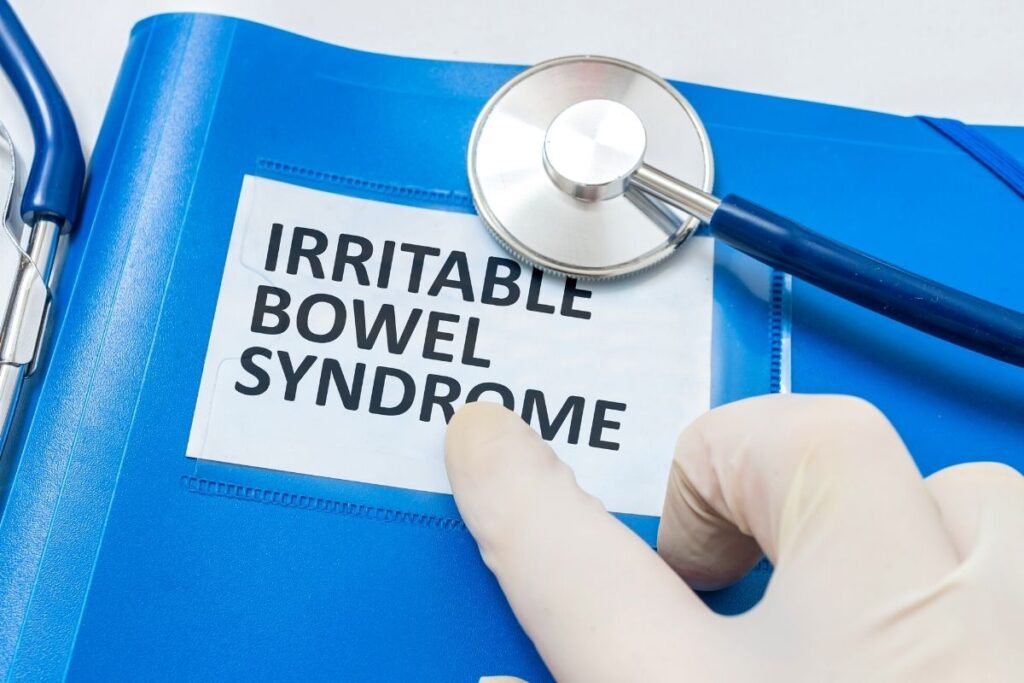
A SIBO Breath Test looks for signs of small intestinal bacterial overgrowth. This enables us to identify an overgrowth of bacteria in the small intestine that may contribute to symptoms of IBS such as bloating and altered bowel patterns.
The SIBO breath test is performed by taking a series of samples of someone’s exhaled breath to test over a 3 hour period for the presence of hydrogen and methane.
Understanding your SIBO report
Interpretation of laboratory results
The primary section of the report will outline the laboratory findings during the evaluation. It includes the quantity of Hydrogen and methane.
Patient’s medical history
It’s also important that the individual’s medical history is taken into consideration when reviewing the results. Various factors need to be taken into consideration when analysing the results.
Recommendations for further treatment
This section will offer recommendations for treatment based on the medical history, findings and laboratory results.

SIBO Test and Hydrogen
Hydrogen gas can be found in small amounts of the intestinal tract of healthy individuals. Usually, hydrogen gas is produced in small quantities by intestinal bacteria.
Hydrogen typically resides in the large intestine, so it’s essential to look at the markers from the first 2 hours of the test. The 3rd hour of testing is considered more representative of the large state.
According to a study, there needs to be at least 20 ppm of hydrogen increase in the first 1.5 hours for the test result to be considered positive. For example, if the baseline is 2 ppm (parts per million), it needs to jump up at least 22 ppm to be considered positive.
Although this technique has the potential for reliable results, there are chances of false-positive results. Many people with SIBO have slow gut motility, which means that the test solution might not get to the large intestine in time.
When hydrogen is detected, it can indicate that excess gas is being produced from this area, suggesting a small intestinal bacterial overgrowth is present.
The presence of high levels of hydrogen in a breath test is a sign that SIBO may be present in the small intestine.
SIBO Test and Methane
Bacteria produce methane in the gut in addition to other gases. If you have SIBO, you may also have an overgrowth of methane-producing bacteria. There are a variety of symptoms, but they are all related to gas production in the intestines. Symptoms include bloating, burping, abdominal pain, excessive flatulence, and commonly is methane overgrowths constipation is present.
Methane typically works as a biomarker different from hydrogen in SIBO testing. With methane, we’re looking at the entire 3 hours. It has been debated for some time, but now the North American Consensus rules that a reading of 10 ppm or higher at any point in the test is positive and can be used as a potential marker for methane SIBO.
SIBO Test and Hydrogen sulfide
Hydrogen sulfide is a gaseous molecule that is released by the bacteria residing in the small intestine. It is theorised that hydrogen sulfide is vital in causing small intestinal bacterial overgrowth (SIBO), as it may stimulate the intestinal cell lining to release more fluid into the small intestine, which can lead to bloating, constipation, and diarrhoea.
There are no guidelines for the quantity of hydrogen sulfide. Usually, the amount of hydrogen sulfide for SIBO positive is 5ppm or more.
Testing for hydrogen sulfide gas on a SIBO test is not currently available in the UK.
What do your SIBO test results mean?
The SIBO breath test is a good indicator of whether an individual has SIBO or not. However, it is not a perfect test. In some cases, the test may come back negative, but the patient has SIBO. In other cases, the test may come back positive, but the patient does not have SIBO.
Working alongside a specialist at this stage who will further make recommendations by keeping in mind your medical history and test results.
What does a positive SIBO test mean?
A positive SIBO test shows that bacteria are present in the small intestine. The small intestine is responsible for absorbing nutrients from your food. If bacteria are present, your ability to absorb these nutrients may be impaired the bacteria overpopulates the small intestine.
In extreme cases this can lead to malabsorption and potential malnutrition.
The results say that this patient is negative. What now?
False negatives are more common than you might think, and some conditions can have undetectable levels of methane. There’s also a chance that small intestine fungal overgrowth (SIFO) is present, a stool test or an OAT (organic acids) test may offer more information to the fungal load of the digestive tract.
How can a patient retest after a possible false negative?
Ideally, the patient should repeat the test using a different testing solution. It is possible to retest using another substrate, such as lactulose or glucose, and use a different test method, such as glucose breath test or glucose hydrogen breath test.
What causes a false-positive SIBO test result?
An overgrowth of bacteria causes SIBO. You may have an overgrowth of bacteria in the small intestine if you have SIBO. A false positive SIBO test result may be caused by an antibiotic treatment, which can cause bacteria to die. This can lead to false-negative results.
How accurate are the SIBO breath test results?
While the breath test for SIBO is not 100% accurate it does offer a clear indication of the bacterial load in the small intestine.
For the most accurate results we often suggestion a glucose and a lactulose SIBO test.
How long for SIBO breath test results?
Through the IBS & Gut Health Clinic results are typically available in 7-10 days.






